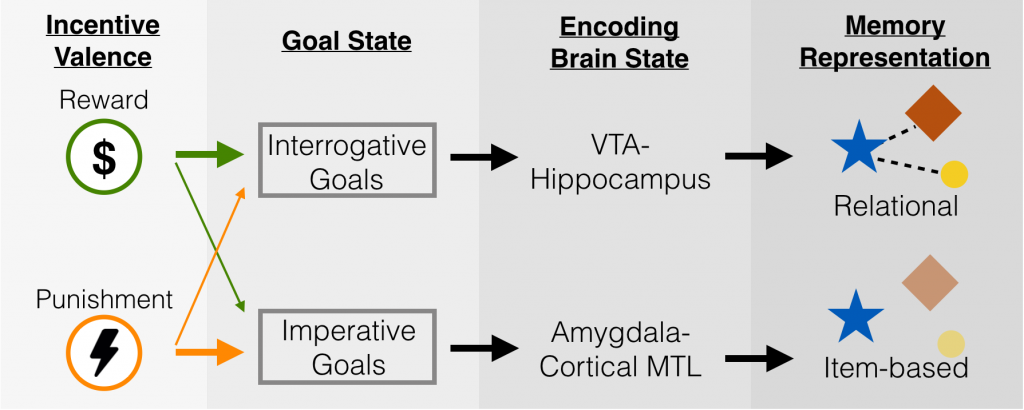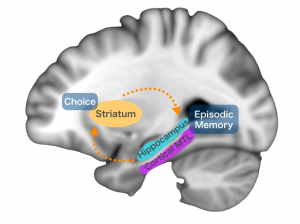
Memories are not direct representations of the environment. Rather an individuals’ goals and desires shape how they tailor memories of their environment to support future behavior. By characterizing encoding and consolidation processes in different salient environments, a focus of the lab is to understand how different brain states shift the translation of veridical experiences into adaptive memories.

Individuals value the ability to actively explore their environments, by manipulating the world around them and observing the outcomes. Critically, this type of active exploration may help build relational maps of the world that combine cues, actions, and outcomes. By manipulating individuals agency to manipulate their environment, a focus of the lab is to understand how active exploration contributes to episodic memory formation.
Threat-related Distortions in Narrative Memory
Threat-induced arousal evokes a series of neurobehavioral events that can eventually lead to biases in episodic memory. While a large body of work has studied these processes in the context of memory selectivity, relatively less is known as to how arousal may cause disruptions in the contextual processing underlying memory contiguity and comprehension. The lab uses a variety of naturalistic stimuli including staged events, movies, and video games to study how threat may results in distortions and fragmentation of memories for narrative events.
Adaptive Memory in Clinically-Relevant Populations
Episodic memories serve as the lens in which we view our world and guide our ability to adaptively navigate complex environments. In normative populations, individuals use affect and motivation to shape their memories in service of future goals. However, in many clinically-relevant populations, aberrant salience processing can distort memories by either fragmenting continuous narratives, exaggerating causal relationships between un-related factors, or distorting the balance of positive and negative events. In a series of studies, we explore how mechanisms of adaptive memory contribute to memory-based psychopathology by studying at-risk individuals. We execute these studies in the domains of anxiety, depression, psychosis, and trauma.


